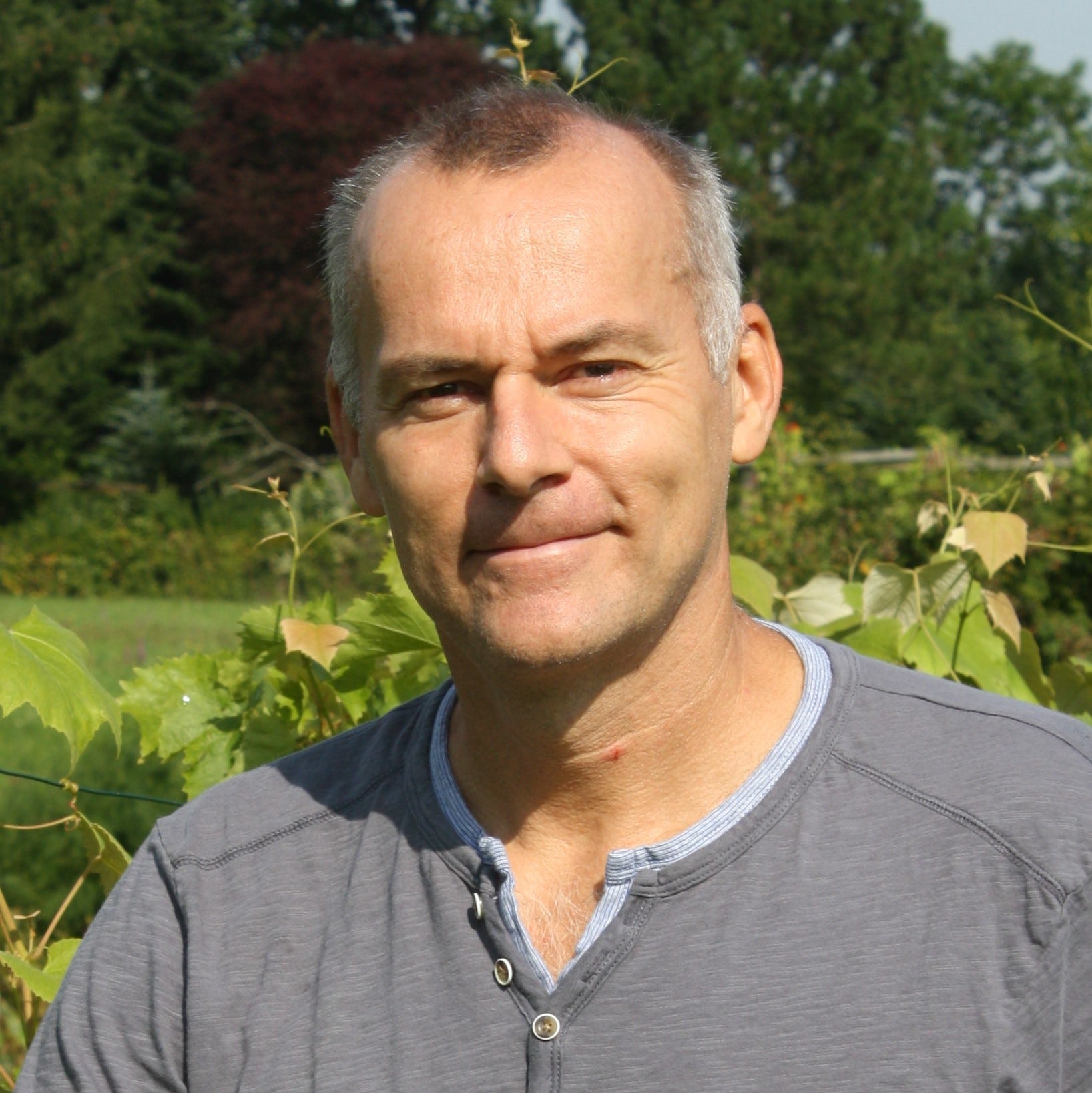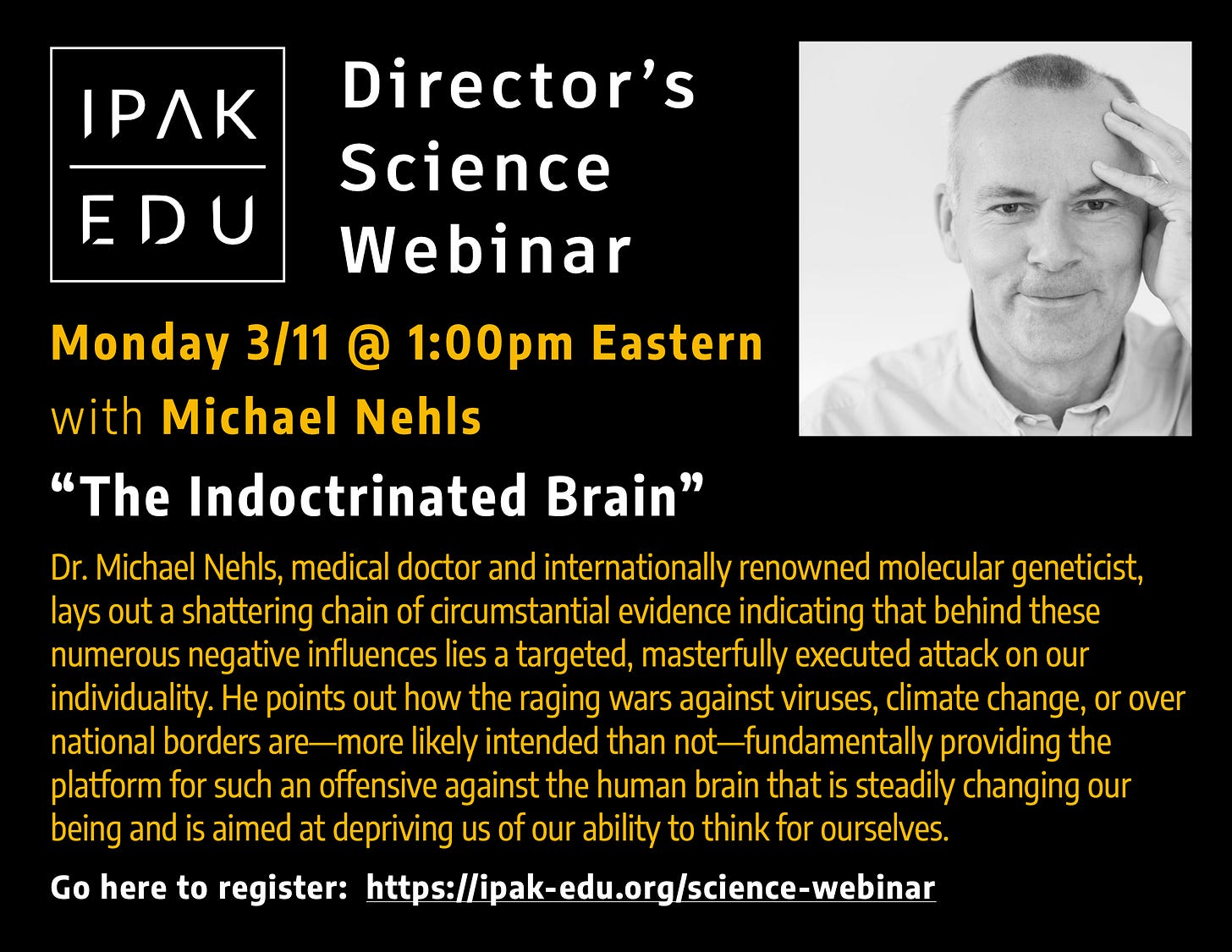This is the 2nd post on the March 11, 2024 session of the IPAK-EDU Director’s Science Webinar featuring the work of Dr. Michael Nehls.
You can find Part 1 here.
Adult Hippocampal Neurogenesis sounds like a mouthful. Some may even be dissuaded from digging into what it is and what it means for us as human beings.
So let’s break it down.
Neurogenesis combines the Greek neura ‘nerve’ with the Greek genesis ‘origin, creation’; so literally, it is the ‘creation of nerves’. In the context of the human nervous system, the creation of new nerve cells can be broken into two general periods in our lives: in the developing brain when we are young, and the adult brain as we age.
New neurons in the adult brain seem to be largely born in two particular regions of the brain; namely, the olfactory bulb and the hippocampus. Fascinatingly, the sense of smell is intricately tied to learning and context-dependent memory, as is the hippocampus.
As we saw in the first video clips from this talk, the hippocampus plays a pivotal role in the brain. Nehls names it the Autobiographical Memory Center, the source of individuality and mental energy.
The hippocampus is unique in its importance. It is the locus responsible for the growth of the majority of new nerve cells in the brain; and in particular, a special type Nehls refers to as index-neurons. These index-neurons reference and record spatial and temporal information (the where and when) and allow us to store and recall the more detailed content of our experiences (the what and how).
A healthy hippocampus—essential to our survival—continues to produce new index neurons throughout life.
These index-neurons in the hippocampus are at the heart of the emergence of individuality.
Independent of genetic predisposition, individuality is tied to adult hippocampal neurogenesis. By virtue of indexing our experiences and memory, the index-neurons enrich us, leading to our uniqueness. It also contributes to our capacity to cope with stress and depression; conversely, when adult hippocampal neurogenesis is inactive or stifled, our psychological resilience is diminished.
Hippocampal neurogenesis is also pivotal in the disease processes of Alzheimer’s Disease, dementia, and other neurological conditions.
Nehls reveals how the development of new index-neurons is at the heart of our mental immune system; specifically: psychological resilience, curiosity, individuality, creativity, and rational compassion.
Adult hippocampal neurogenesis is essential for System 2 thinking.
Here’s the 4th clip from the presentation.
Adult Hippocampal Neurogenesis and the Mental Immune System
If you appreciate the content, please consider giving this post a like. It's a simple gesture that doesn't cost a thing, but it goes a long way in promoting this post, spreading this content, and bringing awareness and understanding to others who might benefit. You are awesome. Be awesome.
What factors affect the health of the mental immune system?
Adult hippocampal neurogenesis is linked to our sense of ‘Purpose in Life’. We thrive when we have a sense of purpose. Nehls goes on to describe how four primary areas are also intertwined; namely, physical activity, social life, sleep, and nutrition.
Cultivating health in these four areas activates and strengthens our sense of purpose and neurogensis in the hippocampus.
Purpose in Life, Physical Activity, Social Life, Sleep, and Nutrition
Specifically with regard to nutrition, Nehls highlights 2 key essentials: Omega-3 fatty acids and Vitamin D.
A great many of us are deficient in these critical nutrients. Optimizing both are essential for brain health.
He advocates for algae-based Omega-3’s. Succinctly: cut out the middle-fish and go to the source. Fish don’t make Omega-3’s, they have it because they consume krill, and the krill get it from plankton. It’s the microalgae that are doing the heavy lifting.
Further, Nehls observes that there is critical research indicating that adequate Vitamin D levels essentially obviated the risk of death due to COVID-19. The levels which are natural in hunter-gatherer populations turns out to be protective against Alzheimer’s Disease, dementia, depression, respiratory disease, and a host of other ills.
He concludes that there was no justification whatsoever for the mRNA injectable ‘spiking program’.
Nehls observes (with irony) that despite the copious research showing Vitamin D to be essential, we were told that “the viral spike protein is essential for survival, and we don’t need Vitamin D anymore.”
Watch the clip.
The Importance of Omega-3 fatty acids and Vitamin D
How does sleep factor in?
The hippocampus grows when we sleep. This is because melatonin levels peak during the night, activating neurogenesis.
Combining the positive outcomes from physical activity, a healthy social life, nutrition, and sleep, contributes to a healthy hippocampus. Not taking care of these leads to hippocampal shrinkage.
Notably, monotony and social isolation are powerful forces leading to shrinkage of the hippocampus.
The Impact of Sleep, Monotony, and Social Isolation
The measures that have been directed at humanity are weapons aimed at weakening the mental immune system.
Social distancing, anyone?
Lockdown, anyone?
To be continued!
Watch this space for more clips from the full talk. Stay tuned.
Information wants to be free—and over 90% of the content here is accessible to anyone. But everything takes care and time. If you like what you see, and you’re willing and able, consider leaving a tip. Every a little bit helps. Thank you!
Follow Dr. Michael Nehls on Substack and at michael-nehls.com








I just discovered your subtack. Great! I read "The Indoctrinated Mind." Hearing the shorts helps me recall information from the book, there was so much it was overwhelming. My hope is real scientists like the author find a way to remove the long-term damage to individuals and offspring.